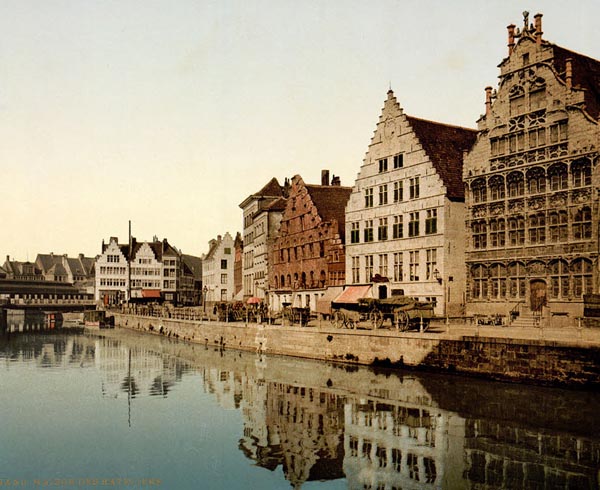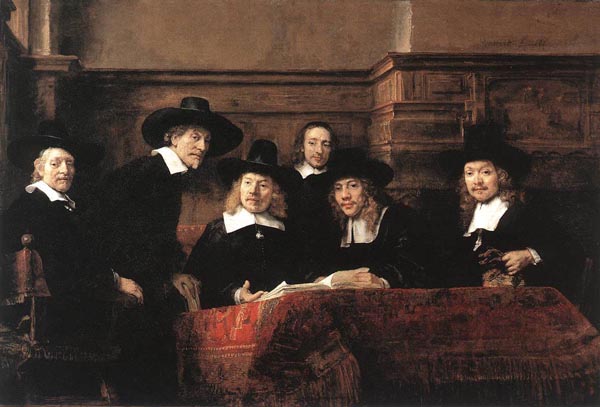Organic Society
 |
 |
 |
 |
 |
 |
 |
When Men & Affairs of Commerce
Were Placid

What was their original use, these buildings that appear so recollected and, we could even say, so pensive? Were they residences for patricians? Or perhaps centers of study?
No. They were occupied by entities of the guilds. To the extreme right is the headquarters of the Guild of Free Boatmen; next to it sets the house of Guild of Grain Measurers adjoined by the small Customs Building, where the medieval merchants came to declare their goods. Then, the Granary and, finally, the Bricklayers Guild.
They were, then, buildings of work and business. And history tells us that in these buildings a very intense and productive activity developed.
But economic production was not yet engulfed by today’s materialist influences. For this reason, it was conducted in an ambience of calm, reflection and good taste that contrasts greatly with the feverish, agitated, inconsiderate and vulgar atmosphere that so often marks business in our days. Who today would imagine such nobleness in business structures and such good taste for the works of guilds?
The problem here is more one of mentality than of art. According to a spiritual perspective, the best of the human works is made by the mind. Hence, economic production gives its best – in quality as well as quantity – when it is carried out in an atmosphere of an assiduous calm and meditative recollection.
According to a materialist perspective, quantity is more than quality; the performance of the body is more than that of the mind; feverish activity is more than reflection, and nervous agitation more than authentic reasoning. Hence, from this mentality arises the agitated atmosphere that we find in certain stock markets and large modern city streets.

How different this type is from those placid, stable, dignified and prosperous bourgeois with their intelligent gazes, offered to us by Rembrandt in the admirable painting The Syndics of the Textile Merchants.
It was men like these who, despite the still uncertain and slow means of communication, established in all directions the network of their activities and laid the foundation for modern commerce. Their work, however, was carried out in tranquility and, we would almost say, in recollection. Thus, they themselves reflect the peculiar atmosphere of the old buildings that we are analyzing.
It is a fecund lesson for our poor world, increasingly ravaged by neuroses.
- The guild houses are along the Graslei on the Lys (Leie) River, Ghent.

Catolicismo n. 92, August 1958
Posted June 18, 2014
Organic Society was a theme dear to the late Prof. Plinio Corrêa de Oliveira. He addressed this topic on countless occasions during his life - at times in lectures for the formation of his disciples, at times in meetings with friends who gathered to study the social aspects and history of Christendom, at times just in passing.
Prof. Plinio
Atila S. Guimarães selected excerpts of these lectures and conversations from the transcripts of tapes and his own personal notes. He translated and adapted them into articles for the TIA website. In these texts fidelity to the original ideas and words is kept as much as possible.
______________________
______________________












